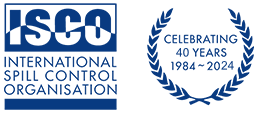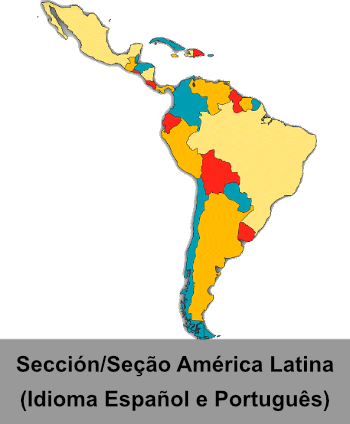This week ISCO President, David Usher, and Membership Director, Mary Ann Dalgleish are attending Clean Gulf.
They look forward to seeing many of our members at the event and to meeting others who have not yet joined ISCO.
Topics likely to be discussed will include some of ISCO’s current initiatives –
• Supporting creation of the International Response Resource Inventory
As reported in previous issues of the ISCO Newsletter, ISCO joined with other delegations at the IMO OPRC-HNS Technical Group meeting in London earlier this year in supporting an initiative introduced by the US delegation to apply lessons learned during the Macondo spill response in improving the ways that International Offers of Assistance (IOA) will be handled in future.
Part of this initiative is the creation of an international Response Resource Inventory (RRI). The IOA project aims to streamline the process under which available response resources can be identified, sourced and rapidly mobilised to a major oil spill event in any part of the world. The term “resources” means equipment, materials, and people with relevant knowledge and experience.
ISCO has joined the IOA Core Group of interested delegations and has set up a correspondence group amongst its members to help progress the organization’s contribution. Currently we are identifying kinds of equipment and materials that should be included in the RRI. So far, ISCO members have identified around 70 different categories of equipment /materials to be added to an initial listing of large, high capacity items compiled by the initial IOA ad hoc group.
ISCO’s focus is on resources that can be provided by the private sector (private sector to private sector; private sector to governments; and private sector – through – government to government). This is aligned with the interests and capabilities of our members.
The RRI project is a work-in-progress but we anticipate it will become a tool that will be used by governments and other organisations to quickly find urgently needed resources in major spill events.
Members of the ISCO RRI Correspondence Group should note that a new post has been made on the RRI Project page on the ISCO website. Members who would like to join the Correspondence Group should contact the Secretary
.
• Working to improve continuity of at-sea oil spill recovery operations
ISCO is continuing its efforts to make it easier for responders engaged in at-sea oil skimming operations to decant settled-out water instead of halting oil recovery because available tank capacity is topped-up. Several of our members have very strongly voiced their frustration at being refused permission to decant settled-out water in a responsible way despite it being so obvious that consideration of net environmental benefit clearly indicates that decanting and continuation of productive skimming is the only sensible option.
• Providing a career development path via Professional Membership
Students, apprentices and trainees can join ISCO as student members and pursue a career development path that, as qualifications and experience are gained, can lead to eligibility for Associate Membership (AMISCO), Membership (MISCO) and, eventually, Fellowship (FISCO). The key word is “professional” when applied to men and women who are making a success in their careers and have the necessary levels of knowledge and expertise.
Professional recognition is a visible mark of quality, competence and commitment, and can offer a significant advantage in today’s competitive environment. More information can be found on the ISCO website at www.spillcontrol.org Look under Membership and click on Professional.
The ISCO Secretariat is now receiving applications for Professional Membership and the submission deadline for applicants wishing to be included in the first tranche of applications to be considered by the Membership Standards Committee is 31 December 2012. Applicants are reminded that applications must be accompanied by the required assessment fee
• Improving response outcomes by application of scientific knowledge
Readers of Cormack’s Column will be very much aware of the number of beliefs and prejudices that currently inhibit or prevent the most effective response to oil and HNS pollution events. ISCO argues that response plans and operations should be based on knowledge that has been proven by scientific experimentation and observation.
ISCO is currently working on the development of improved knowledge-based contingency planning for marine incidents. This will fully take into account the fate of oils and HNS as controlled by their physical and chemical properties and their interaction with atmosphere, sea and shorelines. The means by which spills may be curtailed and the effectiveness of response techniques assisted by natural evaporation, dispersion, solution, and degradation will be fully addressed.
The overall aim is to make spill response more cost-effective and to achieve high quality clean-up outcomes by eliminating options that increase environmental damage and/or unnecessarily add to the cost and amount of work needed.





